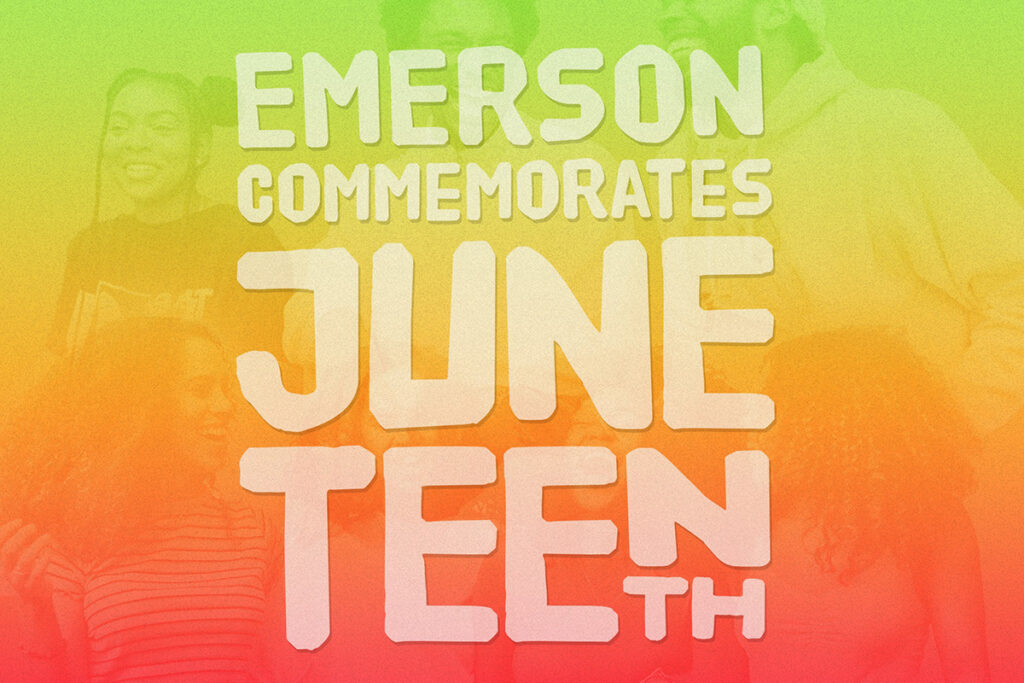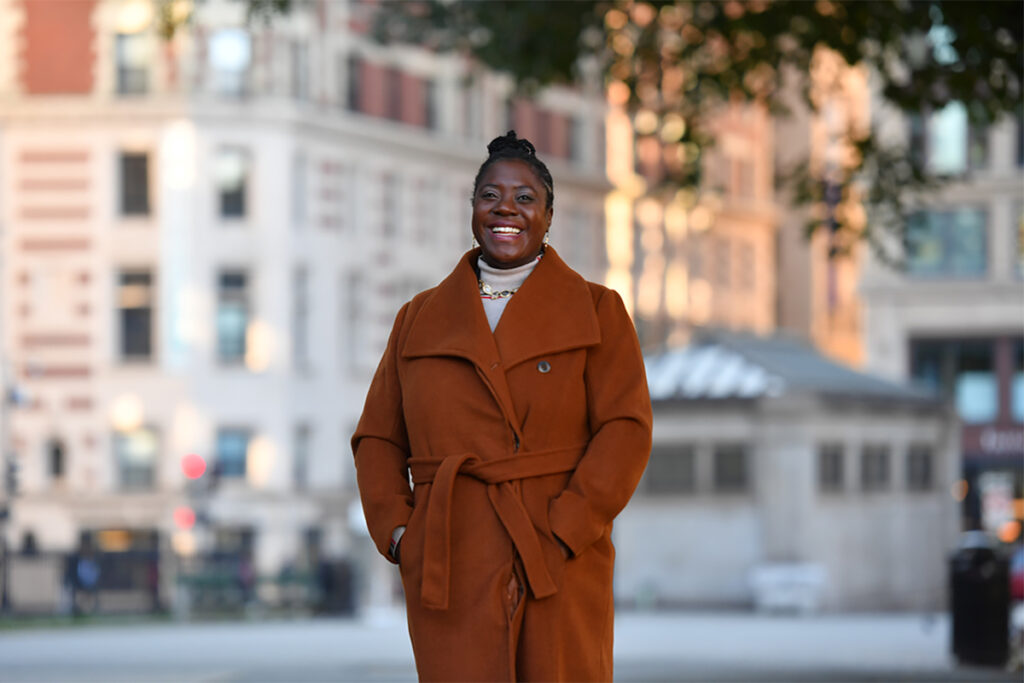Juneteenth: Its History, Celebration, and Significance

Note: This piece is reposted from June 18, 2024.
Juneteenth commemorates the end of slavery in the United States after the Civil War, and became a federal holiday in 2021. It has been celebrated since the late 1800s.

Learning about Juneteenth is important to understanding the history of our country. Emerson Today asked Vice President for Equity & Social Justice Shaya Gregory Poku about the holiday and its importance to the nation and to the Emerson community.
Q: How did Juneteenth begin?
It depends on whether you mean how did the original Juneteenth celebrations begin or the official federal holiday. I am going to try to answer both.
Juneteenth was celebrated in Texas among the families of the communities who were formerly enslaved going back to the 1800s. The annual celebrations fanned out in Black communities across the nation with the first and second Great Migrations of African Americans from the South to the North and West, which helped spread recognition across the nation.
Opal Lee, a Texas native and an elderly Black woman activist, was instrumental in pushing for those informal celebrations to become a federal holiday. At age 90, Lee began a campaign to bring attention and awareness to the need for a National Day of Observance for Juneteenth.
Q: Why has Juneteenth become so important?
Juneteenth is important because it continues to highlight the lesser told stories about the founding and history of the United States. Juneteenth, the Tulsa Race Riot Massacre, redlining, etc. – these are not what many of us were taught in school. It resists and reframes the cultural hegemony of the story of this country.
Symbolically, some African Americans consider Juneteenth their “Independence Day” because Texas was the last Confederate state to end slavery, and because in 1776, when the Declaration of Independence was signed, their ancestors (and my ancestors) were not considered people, but property under the law. That said, for many, Juneteenth isn’t just about slavery in the U.S., but about the full transatlantic slave trade across the Black Diaspora and the ongoing quest for liberation.
Q: How is Juneteenth celebrated?
It varies, but many people will have BBQs or cookouts, play games, have live musical performances, tell stories, etc. It is much like many other summertime holidays in that respect, except Juneteenth also centers Black pride, history, and accomplishment, so the Black National Anthem may be sung, or the Black Pride flag displayed, and stories about Black achievements, etc., will be told and be at the forefront.
Q: What is the significance of President Biden making it a federal holiday?
The conclusion of intergenerational chattel slavery in the United States was and is noteworthy. Making Juneteenth a federal holiday allows time and space for people to think more about the origin story of the United States and about the violence perpetrated against Indigenous and Black people in the creation of this country.
The downside is that by becoming a federal holiday, it could mean that people may take the day off without learning about its history or using the day to understand and appreciate Black contributions to the United States, which would be a loss.
Q: What is the importance of Juneteenth to the Emerson College community?
Juneteenth is important to Emerson because we are a school of communication and the arts. We understand the importance of cultural imagination and untold stories. We also value equity and social justice. Juneteenth represents an important chance to think about freedom, history, and how our actions can advance the freedoms of others who may be experiencing any form of inequality or brutality today.
For example, I would like to challenge Emersonians to learn more about Haiti, the first nation to ban slavery, and how the history of slavery and colonization is affecting the political instability the country faces today, which has created the “Migrant Crisis” we are experiencing and seeing news about here in Massachusetts.
Q: What will you be doing this Juneteenth?
I will be teaching my children about Juneteenth. There are many great developmentally appropriate children’s books and YouTube videos about the holiday. I want them to be informed.
Q: Is there anything else you’d like to share about Juneteenth, the Emerson College community, etc?
There are three things that are important for the Emerson community to understand. The first is that the Emancipation Proclamation in 1863 did not end slavery in the United States. It took the 13th Amendment of the Constitution 2 years later to fully outlaw the practice, and even then, it still exempted people who are enslaved as “punishment for crime.”
Second, the slave owners in Texas were aware of the Emancipation Proclamation and what it meant, but they intentionally withheld the information, and this cost the enslaved people of Texas nearly two years of their freedom (1863-1865). The Union Army’s presence and the news of the information were needed to enact their emancipation.
The third thing is that while the enslaved folks were “freed,” we must unpack that term. Nearly all formerly enslaved people became sharecroppers, which was another form of slavery economically, and legally African Americans had no civil rights, so they were not emancipated in any real meaningful sense. Black people in the United States did not have the full right to vote until the Voting Rights Act passed in 1965 – 100 years after the day we’ve come to mark as Juneteenth.
Alayne Fiore, Executive Director of the Social Justice Collaborative’s Hub for Inclusive & Visionary Engagement (HIVE), contributed to this Q&A.
Categories